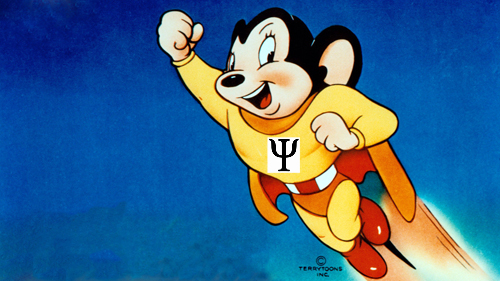Merry Monday!
JustHeath likes sports and athletic events. JustHeath also places a huge value on loyalty. Thus, you may be thinking that I am one of those diehard fans of one’s alma mater(s)…you would be in error. I enjoy close games between skilled opponents and not blowouts regardless of whether or not “my” team is on the winning side. I do not think poorly of said fanatics, but I must admit that I have always been a bit confused by such behaviors and devotion. In particular, during the holidays there’s always grumbling amongst most of my family members about which particular university separated by a mere 100 miles or so will win an oval-shaped-fowl-product symbol of gridiron prowess. What bewilders me is that I’m the only one who has attended college in attendance…how can one have such strong feelings about an institution one has no real knowledge about or “right” if one never participated in the particular “group”? This phenomenon also partially explains why I am not a major supporter of professional sports (although a more resonant reason is related to the decreased intrinsic motivation associated with the big leagues). Even when I was enrolled in such institutions I don’t recall ever being as obsessed with the results of sporting events as I recently saw displayed on a variety of social networks. Sure, I was glad when “my” team won, but I never hated another team for simply being “my” team’s nemesis. In the interests of full disclosure, I should mention that I attended both of those rival teams’ universities and have mostly positive things to say about each of them; I also have recently visited the third most known (at least in NCAA sports) state university in Mississippi, and I had a very positive experience there. You may have noticed that I have used quotation marks around my referring to team, and that is because I was not actually on any of the teams that were doing battle on the field—I suspect most readers who claim a team also do not actually play for that team. I find it fascinating how people claim ownership through associations in groups regardless of individual effort or participation. At this point, today I think I have left you with more questions than illuminations for these psychological phenomena. Never fear, for JustHeath is here! There’s a (psych) app for that!
Firstly, I highly recommend Abelson, Frey, and Gregg’s (2004) book Experiments With People: Revelations From Social Psychology because it highlights 28 famous psychological studies by breaking it down into laymen’s language with direct applications to daily life. I’ll be using this book in a lot of my posts, and one of the chapters focuses on today’s topic. Cialdini et al. (1976) performed a series of three experiments to investigate the “bask in reflected glory” (BIRG) phenomena associated with sports teams winning or losing. I’ll keep the jargon minimal, but I really think readers will find the results interesting (if not really that surprising). In the first study, the researchers observed the apparel choices of university students on the Monday after the school’s Saturday football game. They found that students were much more likely to wear attire with school logos or mascots on Monday if “their” team had won on Saturday; these results were statistically significant. The psychologists postulated that this support was related—at least partially—to personalizing someone else’s successes to improve one’s own self-esteem. “But wait, JustHeath! I’m one of those sports fanatics, and I already have great self-esteem! Can I help it if I own tons of logo-studded apparel? What if I was just so excited I didn’t have time to do laundry and wore the same thing I did to the game?” Luckily, Cialdini et al. anticipated such queries and stipulations, so they performed Experiment 2. In this study, college students were called and primed with general survey questions; half were told they answered most of them correctly, and the other half were told they had missed most of them. The idea was that their self-esteem would be somewhat altered depending on which condition they were sorted. Then they were asked about either a recent win or loss of their school’s football team; as expected, participants responded using statistically more “we” responses for wins rather than non-“we” responses, which were more prominent for losing situations. However, the major importance of this finding was that it was only true for individuals who were in the low self-esteem condition. Therefore, the presumption is that people often try to associate themselves with winners in order to boost their own self-esteem. The last experiment was very similar to the second one, but their results were centered on confirming the idea that the aforementioned behavior was more prevalent in situations in which people were trying to impress others from outside their own in-group (e.g., college or state). Ain’t psychology neat?
How about you? Take our poll about your apparel choices.
References
Abelson, R. P., Frey, K. P., & Gregg, A. P. (2004). Experiments with people: Revelations from social psychology. Mahwah, NJ: Lawrence Erlbaum Associates.
Cialdini, R. B., Borden, R. J., Thorne, A., Walker, M. R., Freeman, S., & Sloan, L. R. (1976). Basking in reflected glory: Three (football) field studies. Journal of Personality and Social Psychology, 34, 366-375. doi:10.1037/0022-3514.34.3.366
